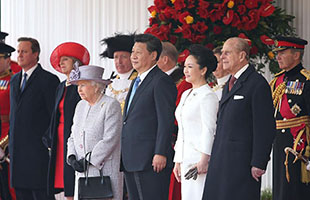UK unveils powers to spy on Web use, raising privacy fears
(Agencies) Updated: 2015-11-05 13:40LONDON - Britain unveiled plans on Wednesday for sweeping new surveillance powers, including the right to find out which websites people visit, measures ministers say are vital to keep the country safe but which critics denounce as an assault on freedoms.
Across the West, debate about how to protect privacy while helping agencies operate in the digital age has raged since former US intelligence contractor Edward Snowden leaked details of mass surveillance by British and US spies in 2013.
Experts say part of the new British bill goes beyond the powers available to security services in the United States.
The draft was watered down from an earlier version dubbed a "snoopers' charter" by critics who prevented it reaching parliament. Home Secretary Theresa May told lawmakers the new document was unprecedented in detailing what spies could do and how they would be monitored.
"It will provide the strongest safeguards and world-leading oversight arrangements," she said. "And it will give the men and women of our security and intelligence agencies and our law enforcement agencies ... the powers they need to protect our country."
They would be able to require communication service providers (CSPs) to hold their customers' web browsing data for a year, which experts say is not available to their US counterparts.
"What the British are attempting to do, and what the French have already done post Charlie Hebdo, would never have seen the light of day in the American political system," Michael Hayden, former director of the US National Security Agency and Central Intelligence Agency, told Reuters.
May said that many of the new bill's measures merely updated existing powers or spelled them out.
Police and spies' access to web use would be limited to "Internet connection records" - which websites people had visited but not the particular pages - and not their full browsing history, she said.
"An Internet connection record is a record of the communications service that a person has used - not a record of every web page they have accessed," May said. "It is simply the modern equivalent of an itemised phone bill."






